How to Blend Colored Pencils with Solvent
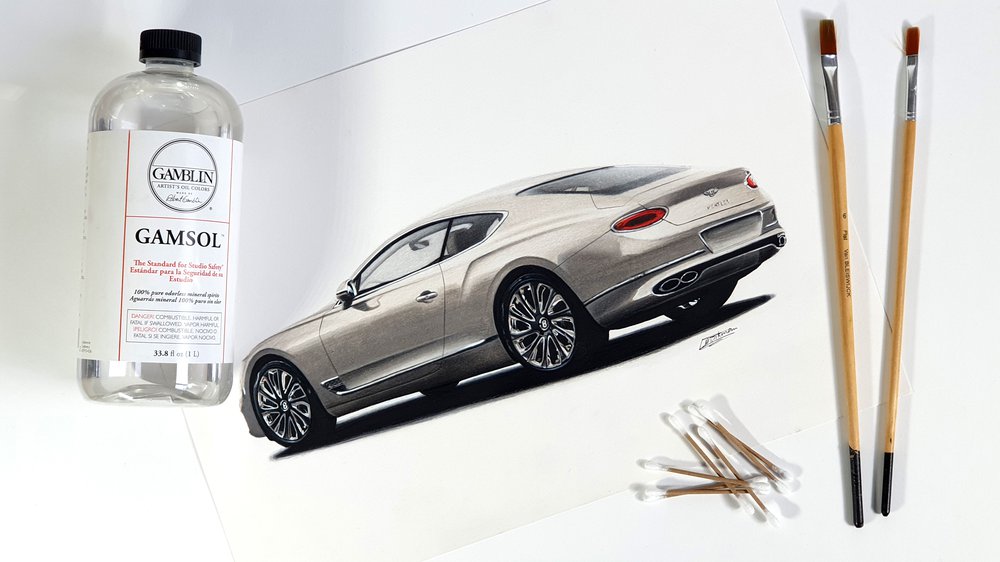
Blending colored pencils with a solvent isn't too difficult, but there are some things you need to get right to make it turn out well.
How do you blend your colored pencil drawing with a solvent?
1. Color your drawing with colored pencils
To use a solvent, you must first draw the first layer of your drawing. This doesn't have to look good, you just need to get enough pigment down on the paper. But make sure you don't apply too much pigment either.
Don't worry about the details. You can easily add highlights and details in the next layers.
2. Dip the brush or other applicator in solvent
Once you have enough pigment down you can start blending it with solvent. To apply the solvent you can use a medium soft brush, a cotton swab, or a folded paper towel and dip it shortly into the solvent.
3. Tap off excess solvent onto a piece of tissue/paper towel
This is probably one of the most important steps. When you've dipped your brush, cotton swab, or paper towel in the solvent you need to tap off the excess solvent on a tissue or paper towel.
If you don't do this the blending will look very spotty and uneven. And it will take ages to dry. When you tap the excess solvent off you have a lot more control and it's easier to get a smooth blending.
4. Start blending the light parts and work your way to the darker parts
Now it's finally time to actually blend your drawing. You must start blending the lighter parts before moving on to the darker sections. Otherwise, you'll mix the darker colors into the lighter ones which makes it look muddy and desaturated.
To blend the pigment you just brush over it until you notice that the grain/white spots of the paper are colored and then you move on to the next part and so on.
5. Let it dry for at least 20 minutes
Once you're done blending the parts you wanted to blend you need to let it dry. I found that 20 minutes will often be enough depending on how much solvent you've used.
You can easily check if it is dry by trying to draw on it. When there is no friction between the paper and the pencil you need to let it dry for longer.
6. Repeat but with less and less solvent
Now that the first layer is done you repeat this process until you're satisfied with how it looks. With every layer, you can also add more and more details.
It's very important that you use less and less solvent with every layer otherwise you might remove pigment from the paper instead of blending it.
How do solvents work?
Solvent for colored pencils works the same as water does for watercolor pencils. The solvent breaks down the binder of the pigment which is either oil-based or wax-based. By breaking down the binder of the pigment and making it thinner like watercolors you can now brush and blend the pigment on the paper to fill in the grain.
It's sort of like painting, but instead of mixing the colors on a palette, you mix them on the paper.
What solvents can you use to blend colored pencils?
Not every solvent can blend all colored pencils. I used to use cleaning spirits, which is basically alcohol, to blend my colored pencils. It worked really well for oil-based pencils like the Faber Castell Polychromos, but I couldn't blend the Caran d'Ache Luminance with it.
You can buy solvent specially made to blend colored pencils like the Zest-it Pencil Blend, but you can also just use any paint thinner. My advice would be to buy the Zest-it Pencil Blend if it's available where you live otherwise odorless paint thinners, like Gamblin Gamsol (which is what I use), are a great zest-it pencil blend alternative.
Here is a list of the top 10 best solvents to blend colored pencils.
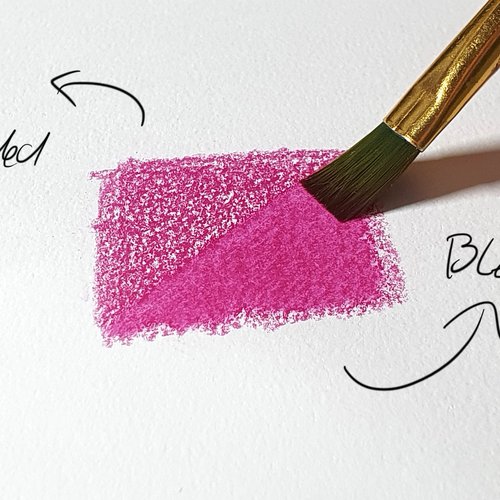
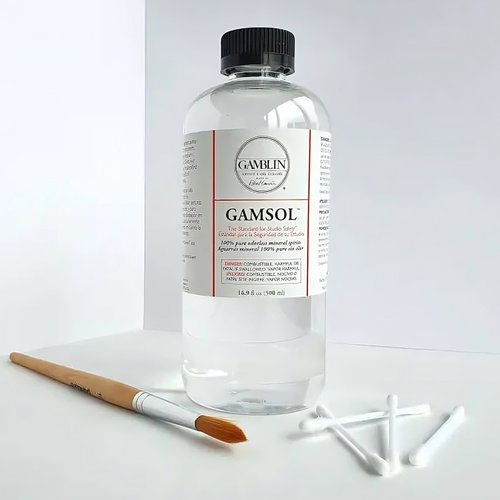
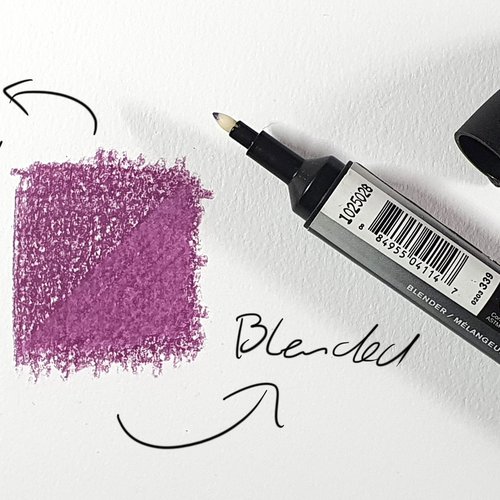
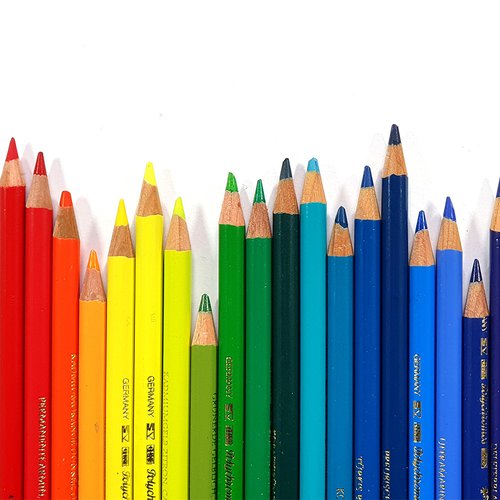
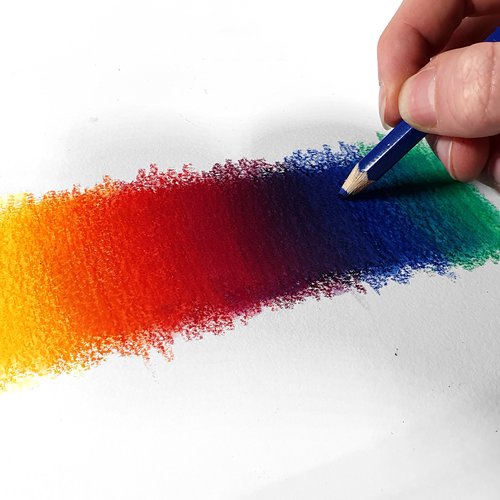
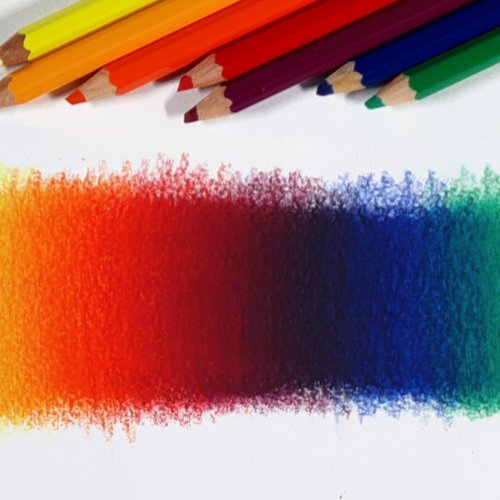
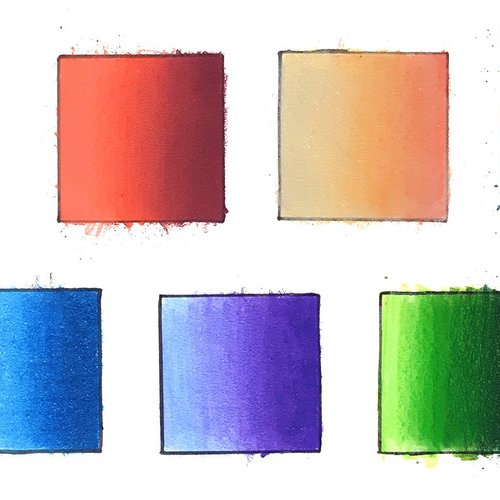




Add a comment
Comments
Again, Thank you for your generous sharing of your learning, information and the products you have used.